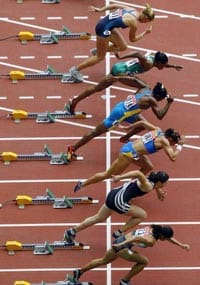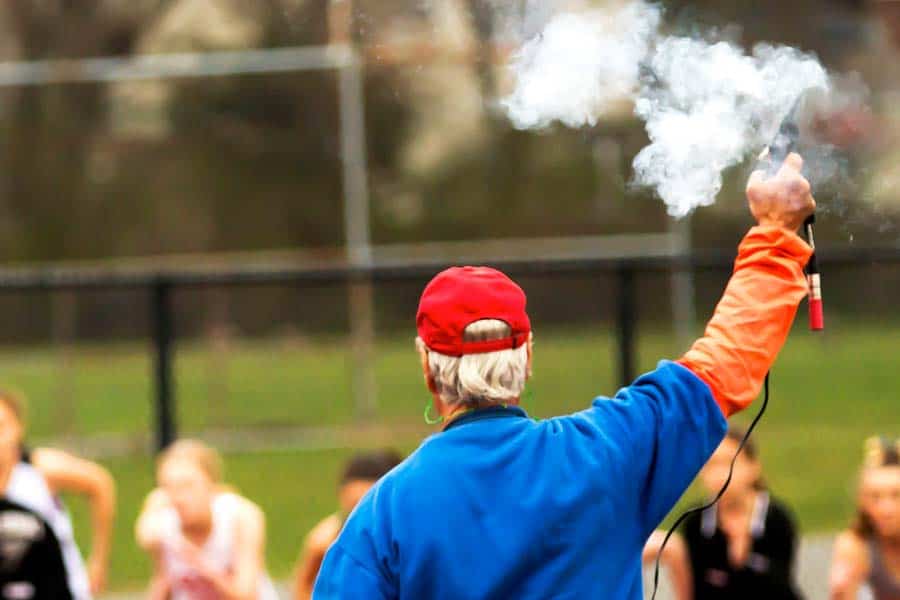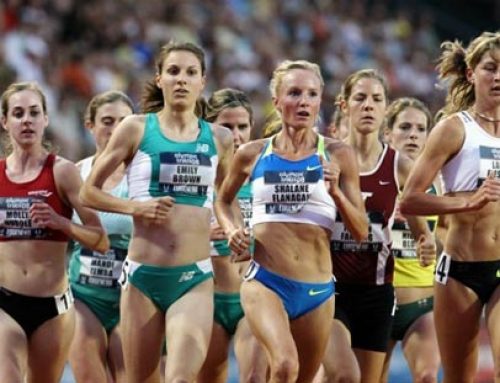In races where milliseconds count, runners can’t afford any type of disadvantage. Unfortunately for this year’s Olympians, the use of an old technology will give a slight advantage to the runners assigned to the inside lanes of the track.

This problem is introduced because “loud guns” are still employed at the Olympics Games. These are starting guns that fire blank cartridges, creating a loud “bang” to alert athletes of the start.
Although sound travels through air very quickly, it does have a finite speed, meaning that the runners closest to the gun will hear the blast first. This becomes especially significant in races such as the 4x100m relay, where the starters are staggered around the first turn of the track. Scientists have calculated that the sound of the gun in such a race will reach the outermost runner 0.150 seconds after it reaches the innermost runner. This is a big deal in sprinting – amounting to a meter or more at the finish line. Furthermore, the sound of the gun is louder when it arrives at the closer runners’ ears. Scientists at the University of Alberta have found that a louder signal is more likely to lead to a startle response in runners, lowering their reaction time by up to 0.018 seconds.

Most modern track events now place loudspeakers behind the blocks of each runner. These loudspeakers are designed to all give a tone at precisely the same moment, and the gun that the starting official holds is actually silent, producing no sound of its own. This technique guarantees that each runner will hear the start tone at the same moment as the other runners. Although these loudspeakers are employed at the Olympics, a silent gun is not used, and researchers have found that the runners actually respond to the sound of the gun when both are available.
The effects of this phenomenon were confirmed at the 2004 Athens Olympics. Researchers at the University of Indiana found that the runners in the outside lanes were slower out of the blocks by the amount predicted by the speed of sound.
The problem could reach even further than expected, as a bad start will often affect an athlete’s entire race. Runners may tense up and perform worse after a relatively poor start.
The International Association of Athletics Federations says is is aware of this problem and is developing new standards to correct it. Yet, amazingly, it sees no need to make emergency changes before the Beijing Olympics.





Leave A Comment